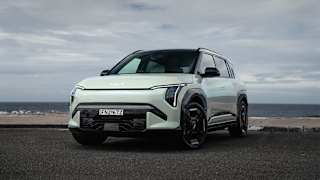Of course your comprehensive car insurance is comprehensive ... unless you are talking about tyres, fires, exhaust systems, radiators or batteries. These are just some of the things for which you may have to pay at least part of the replacement costs following an accident.
While most people understand that drink driving or street racing is going to have an adverse effect on any claim few are aware they could be liable for at least part of the replacement cost of an exhaust system, radiator, battery or tyres if the replacement part is in better condition than the one damaged in the accident.
You could also find that your cover is affected if the car is damaged during a driver education course or as part of a charity car run.
Another hotly-disputed area for claims is where an electrical fault causes a fire. You may be covered for damage actually caused by the flames but have to meet the cost of repairs to the wiring out of your own pocket. And you could lose it all if you leave the car running while you nip into the corner store and it is stolen.
Individual insurers concede that general exclusions are standard across the industry.
Insurers were generally at pains to point out that while the exclusion clauses were present in most policies they were often not applied.
"Really, they are there for the worst case scenarios not for general application," explained one insurer spokesman who did not want to be named. "It is not as if they are invoked in every instance."
National figures from the Insurance Ombudsman for the 12 months to the end of June, 2008, show that from more than 1.5 million motor vehicle claims only 9212 were rejected compared to 33,000 failed claims from just over one million home insurance claims.
However, more than 30 per cent of the disputed motor claims were settled in favour of the customer while less than one in five of the unhappy home claim customers had a win.
Choice magazine spokeswoman Elise Davidson says: "It is really important to read your product disclosure statement and understand just what is and isn't covered."
"Unfortunately many of those PDS across a whole range of products are never read. They are stuck away in a drawer and it is not until it is too late that somebody finds out what the exclusions are.
"The number one rule is that the car needs to be in good repair," says Ms Davidson. "In the case of something like rust damage you may find that you are not covered at all.
"Tyres are generally not covered and you really do need to take due care when it come to protecting your car from theft."
What may not be covered
- Tyres if they are worn or damaged
- Exhaust systems and radiators if rust is present
- Repairs to any electrical fault
- Your car if you leave the keys in it
- Damage from any act of war or terrorism
- Any unspecified personal items in the car such as a portable satellite navigation system or DVD
- Any non-standard accessories such as mag wheels
- Any modifications to the vehicle (paint or panel) if not specified.
Top tips
- Read the product disclosure statement before you sign up
- Ask questions, and then ask some more
- Keep your car in good condition
- Never leave your car unlocked or with the keys in it
- If you have a dispute contact the Insurance Ombudsman 1300 780 808.













Comments